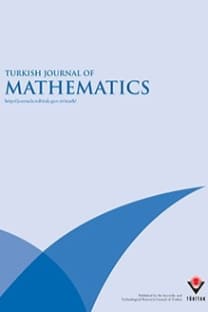Quasi-idempotent ranks of some permutation groups and transformation semigroups
Quasi-idempotent ranks of some permutation groups and transformation semigroups
___
- [1] Ayık G, Ayık H, Ünlü Y, Howie JM. Rank properties of the semigroup of singular transformations on a finite set. Communications in Algebra 2008; 36: 2581-2587.
- [2] Ganyushkin O, Mazorchuk V. Classical Finite Transformation Semigroups. London, UK: Springer-Verlag, 2009.
- [3] Garba GU. On the idempotent ranks of certain semigroups of order-preserving transformations. Portugaliae Mathematica 1994; 51: 185-204.
- [4] Garba GU, Imam AT. Products of quasi-idempotents in finite symmetric inverse semigroups. Semigroup Forum 2016; 92: 645-658.
- [5] Howie JM. Fundamentals of Semigroup Theory. New York, NY, USA: Oxford University Press, 1995.
- [6] Isaacs IM. Finite Group Theory. Graduate Studies in Mathematics, Vol. 92. New York, NY, USA: American Mathematical Society, 2008.
- [7] Levi I. Nilpotent ranks of semigroups of partial transformations. Semigroup Forum 2006; 72: 459-476.
- [8] Lipscomb S. Symmetric Inverse Semigroups. Mathematical Surveys and Monographs. New York, NY, USA: American Mathematical Society, 1996.
- ISSN: 1300-0098
- Yayın Aralığı: 6
- Yayıncı: TÜBİTAK
Zahide Ok BAYRAKDAR, Tuna BAYRAKDAR
Ali MADANSHEKAF, Zeinab KANJANZADEH
A convergent two-level linear scheme for the generalized Rosenau–KdV–RLW equation
Approximation by generalized complex Szász–Mirakyan operators in compact disks
Döne KARAHAN, Sevilay K. SERENBAY, Aydın IZGİ
Almost symmetric numerical semigroups with high type
Pedro A. GARCIA SANCHEZ, Ignacio OJEDA
Muhammad NAEEM, Saqib HUSSAIN, Fethiye Müge SAKAR, Tahir MAHMOOD, Akhter RASHEED
Automorphisms of free metabelian Leibniz algebras of rank three
